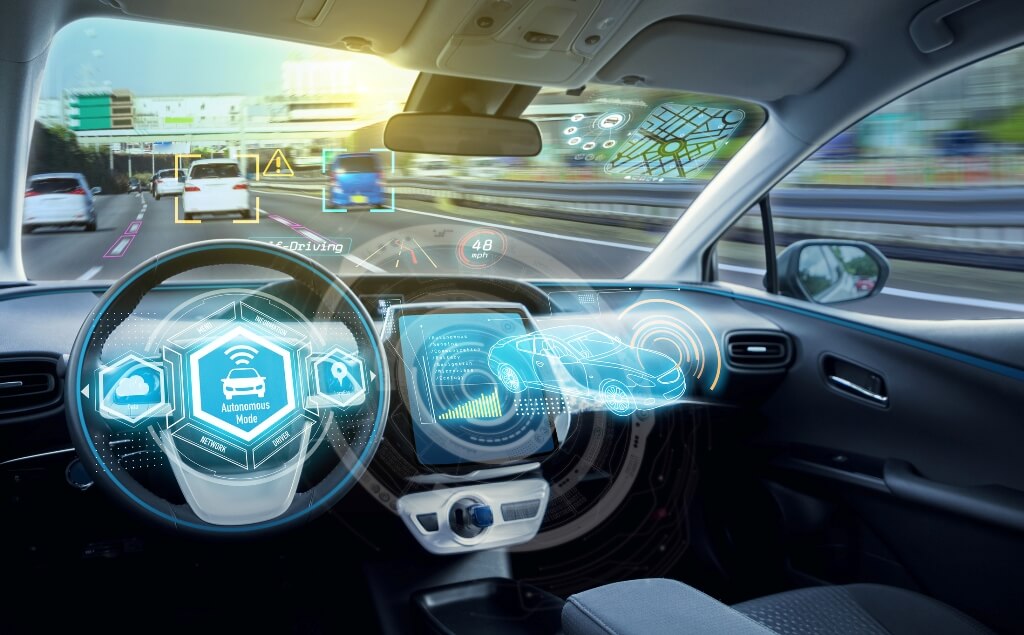Cars and driving haven’t changed a great deal over the last 100 years, since Henry Ford started mass producing them. At the time, cheap cars were a revolution. They connected rural areas to cities and, together with enormous Federal investments in highways, increased trade between major cities. The humble motor car ushered in cultural and economic benefits, the likes of which had rarely been seen before.
Now, the way we think of cars is going to change again. How we sit in them, what we do in them, who we share them with and how much we enjoy our journeys are all going to evolve as dramatically now as they did in the times of the Ford Model T. At the forefront of the new generation will be independent, autonomus, self driven cars.
We are used to digital technologies in our cars now. We listen to digital music as we drive, we benefit romreal time navigation. There are even in car mobile broadband services to provide entertainment options in the back, often for kids watching YouTube. Digital in cars is going to go beyond the Artificial Intelligence which drives them, providing us all with Robocars and In Car Entertainment.
Specific ways in with in car ‘entertainment’
The early signs of the path we’re about to set out upon when it comes to in car entertainment are already visible :-
- In car streamed video entertainment: A growing range of phone companies, in a number of countries around the world, are starting to behave like Media companies. This isn’t a one off entrepreneurial activity. Many digital strategists see the future of media and the future of telecommunications as the same thing
- Tesla – an electric and autonomous vehicle company are delivering entertainment to their customers: There are rumours that Tesla may be starting their own in car streaming music to rival the likes of Apple Music, Spotify and the recently announced Google Streamed Music service.
- Movies in cars could be the ‘next big thing’: Hollywood film studios are rushing to seal up the rights to distribute films over 5G networks to cars, offering us the chance of essentially a Netflix service for films, in driverless vehicles, as we’re chauffeured. Intel CEO Brian Kraznich says, ‘The rise of the AV industry will create one of the greatest explosions of consumer time available for entertainment we’ve seen in a long time.”
- Driving office: Would you be prepared to undertake a longer commute, if someone else was driving? Until now, it’s only been the super rich who have been able to afford a personal driver, allowing them, the owner to use their valuable time for work, as the journey happened. Soon, the privilege will be provided to everyone and the effects could be significant. Buildings are tall and land prices are high in cities to reflect the ‘cost’ of time spent in a car or on public transport getting to work. In simple terms, people will pay to avoid the commute. When people can work from a fully connected office, safely making calls on a phone and clearing emails in the back, while the car drives itself, the cost of the commute goes down and so does the value of land in the cities.
Bringing it all together
Driving is about to become a hugely more entertaining and enjoyable activity. Despite setbacks, including the unfortunate death of a cyclist by an Uber car in Nevada a few months ago, progress towards autonomous vehicles seems inexorable.
Around 25 million Americans work in the transport and logistics industry Autonomous cars will involve a serious upheaval for them and their families requiring a level of retraining and reallocation that hasn’t been witnessed since the end of the second world war. Where they lose, many will benefit with less time spent in cars and much more utility derived from the time that is invested.
The question as to why Waymo, an arm of Google, is involved at all in the development of autonomous vehicles. Seen through the lens of in car entertainment, the reason becomes clearer. When we are freed from driving, we will spend more time with digital services and consuming entertainment products as we are driven around. Entertainment providers will win big and Google will likely derive the benefits of the ads sold while the searches to provide those entertainment services are performed.
